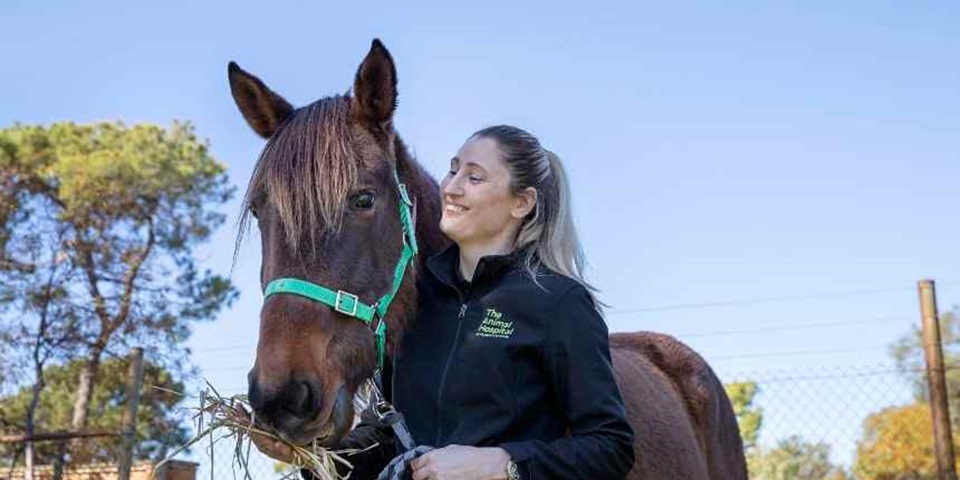News
How to become a veterinarian?

Murdoch Uni’s Vet Science degree is internationally accredited and the only course in WA that will qualify you as a vet.
Becoming a vet is a career for those who are fascinated by the complex inner workings of the animal kingdom, and care deeply for our furry, feathery, and scaly friends. It’s also a profession that’s fairly straightforward in terms of education requirements. The Bachelor of Science (Veterinary Biology) and Doctor of Veterinary Medicine (DVM) at Murdoch is internationally accredited, and the only course in Western Australia that will qualify you as a veterinarian.
Why study veterinary science at Murdoch?
Working alongside animals is incredibly rewarding, and this experience begins well and truly before graduation. The integrated course can be completed in just five years of full-time study. And with the Doctor of Veterinary Medicine, you’ll have the opportunity to further your clinical and practical skills, whilst also completing a research project of your choosing.
International student Chantal Ng Xier Yie, moved from Malaysia to study at Murdoch University because of the wide-ranging opportunities and resources for students. For Chantal, Murdoch’s world-class facilities were a major drawcard. We are the only city-based university in Australia with a fully operational on-campus farm, and we also have an on-campus animal hospital with an emergency centre, a general practice, and equine centre.
How do I become a vet?
While you may know the degree as ‘Veterinary Science’ – and this is the name of the umbrella group of courses – the official degree title is a Bachelor of Science (Veterinary Biology) / Doctor of Veterinary Medicine.
Because it is such a rigorous and essential course dealing with animal life, there are a number of minimum requirements for entry:
- A high ATAR, typically between 95.00 and 99.99.
- Completion of Year 12 and a WA Certificate of Education.
- High school subject recommendations. We suggest applicants take mathematics, chemistry and either physics or biology.
- A scaled mark of 50 or more in English, Literature, English as an Additional Language or Dialect, or equivalent English competency.
- Pass the Casper Assessment (introduced in 2022).
Unlike most other courses where you can apply either directly to Murdoch or TISC, the vet science application can only be submitted through TISC.
What’s involved in the course?
There are 138 credit points in this course, 129 of which are required units and the remainder being a specified elective in an advanced topic of your choice – something which you are passionate about taking a deep dive into. Look over the units we have on offer in the Handbook.
Expect a workload of around 40 hours per week with at least half of this being scheduled learning activities. To learn more about the course, hear from Claire Sharp, Senior Lecturer in Veterinary Emergency and Critical Care.
After graduating, students are eligible for registration to practice veterinary medicine without further examination in Australia and a number of other countries including Great Britain, New Zealand, Malaysia, South Africa, Singapore, and Hong Kong. After meeting a few extra professional requirements, you’ll be able to work in the United States and Canada too.
What if my ATAR isn’t high enough?
It’s true that successful entrants must have a competitive ATAR. However your hopes of becoming a vet aren’t dashed if you didn’t achieve a high enough score. While you unfortunately can’t get in via alternative pathways such as an enabling program, or Special Tertiary Admissions Test (STAT), there are other options. It’s possible to apply for entry into the Bachelor of Agricultural Science (Animal Science) or Bachelor of Agricultural Science (Animal Health) and then, after one successful year, apply for transfer into the vet science integrated degree.
Other career options
You may even find you prefer the above courses and they meet your career expectations. It all boils down to what you are most interested in pursuing and where your strengths lie. If you’re keen on being an animal health and welfare manager, an animal nutritionist, or a wildlife consultant, for example, the Animal Health course could be well suited. On the other hand, if you’re interested in agribusiness and food production, Animal Science might be the best course of action.
Ready to start your career as a veterinarian? Learn more about Veterinary Science at Murdoch.